Chris Miles, Senior Lecturer in Marketing & Communication in the Faculty of Media & Communication, has just published Marketing, Rhetoric and Control: The Magical Foundations of Marketing Theory (ISBN: 9781138667273). The 216 page monograph is the first book to be published in the new Routledge Studies in Marketing series.
Marketing, Rhetoric and Control investigates the tensions that surround the place of persuasion (and, more broadly, control) in marketing. Persuasion has variously been seen as an embarrassment to the discipline, a target for anti-marketing sentiment, the source of marketing’s value in the modern organisation, a mysterious black box inside the otherwise rational and logical endeavour of enterprise, and a rather insignificant part of the marketing programme. This book argues that this multifarious reputation for persuasion within marketing stems from the influence of two quite oppositional paradigms – the scientific and the magico-rhetorical – that ebb and flow across the discourses of its discipline and practice.
Constructing an interface between original, challenging close readings of texts from the beginnings of the Western rhetorical tradition and an examination of the ways in which marketing has set about describing itself, this text argues for a Sophistic interpretation of marketing. From this perspective, marketing is understood as providing intermediary services to facilitate the continuing exchange of attention and regard between firm/client and stakeholders. It seeks to manage and direct this exchange through an appreciation of the changing rational and irrational motivations of the firm and stakeholders, using these as resources for the construction of both planned and improvised persuasive interactions in agonistic (or competitive) environments.
The book is aimed primarily at researchers and academics working in the fields of marketing, marketing communications, and the related disciplines of marketing theory, critical marketing, and digital marketing. It will also be of value to marketing academics in business schools, including those working in the areas of media and communication studies who have an interest in commercial and corporate communication, brand use of interactive media, and communication theory.
One early review rave review from Prof. Stephen Brown of Ulster University states:
“There is nothing “mere” about rhetoric. Long demonised and often misrepresented, rhetoric is an ancient artform whose time has come. As Miles shows in this exemplary text, rhetoric is central to the modern marketing condition. Marketers’ seemingly magical ability to cast spells of delight, desire, distinction over delirious consumers is rooted in their rhetorical acumen. A sagacious review of the principal rhetorical traditions and a brilliantly-written reading of marketing principles and practices, Miles’ book is a rhetorical triumph. In a word, it’s magic!”
Link to the book’s page on the Routledge website:
https://www.routledge.com/Marketing-Rhetoric-and-Control-The-Magical-Foundations-of-Marketing-Theory/Miles/p/book/9781138667273
Table of Contents:
Chapter 1 A History of Rhetoric for Marketers
Chapter 2 Marketing Scholarship and Rhetoric
Chapter 3 Control and the Discourse of Marketing Science
Chapter 4 A Rhetorical Approach to Marketing as Exchange
Chapter 5 Marketing and Sophism – a comparison
Chapter 6 Magic, Sympathy, and Language
Chapter 7 The Magical Roots of Rhetoric
Chapter 8 Magical Persuasion and Marketing
Chapter 9 A Sophistic Marketing
Chris Miles was co-convenor of the 1st International Symposium on Marketing (as) Rhetoric which was held last year at Bournemouth University. His research deals with the discursive construction of marketing theory and practice, particularly as it relates to communication and control. He also publishes in the areas of rhetoric, cybernetics, and alternative religion.


 Sara Ashencaen Crabtree, Lorraine Brown, Frances Hawkhead & Jayne Caudwell
Sara Ashencaen Crabtree, Lorraine Brown, Frances Hawkhead & Jayne Caudwell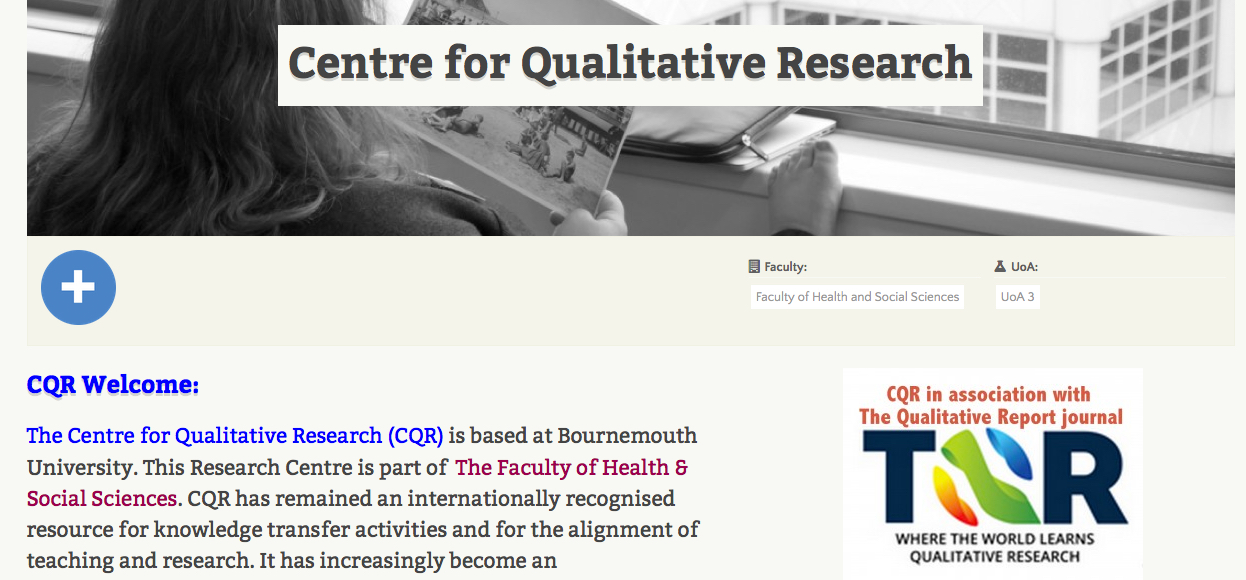

 Every BU academic has a
Every BU academic has a  By clicking on this box, on the left of the Research Blog home page just under the text ‘Funding Opportunities‘, you access a
By clicking on this box, on the left of the Research Blog home page just under the text ‘Funding Opportunities‘, you access a 
 Alina is a founding member of the Interest Group established officially in 2016, following a collective effort of raising signatures that she co-ordinated as a volunteer. The Group has grown fast to over 100 members worldwide and brings together scholars investigating topics related to public diplomacy, nation branding, country image and reputation, public relations for and of nations, as well as political, global and cultural communication influencing international relations.
Alina is a founding member of the Interest Group established officially in 2016, following a collective effort of raising signatures that she co-ordinated as a volunteer. The Group has grown fast to over 100 members worldwide and brings together scholars investigating topics related to public diplomacy, nation branding, country image and reputation, public relations for and of nations, as well as political, global and cultural communication influencing international relations.




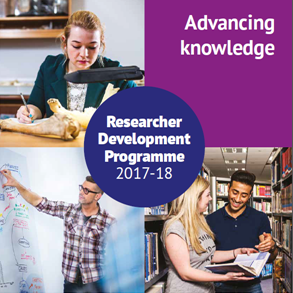
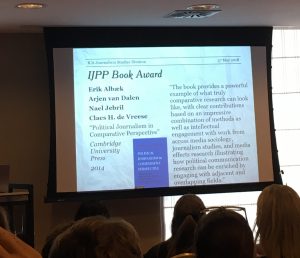 Dr Nael Jebril was recognised for his co-edited book entitled
Dr Nael Jebril was recognised for his co-edited book entitled 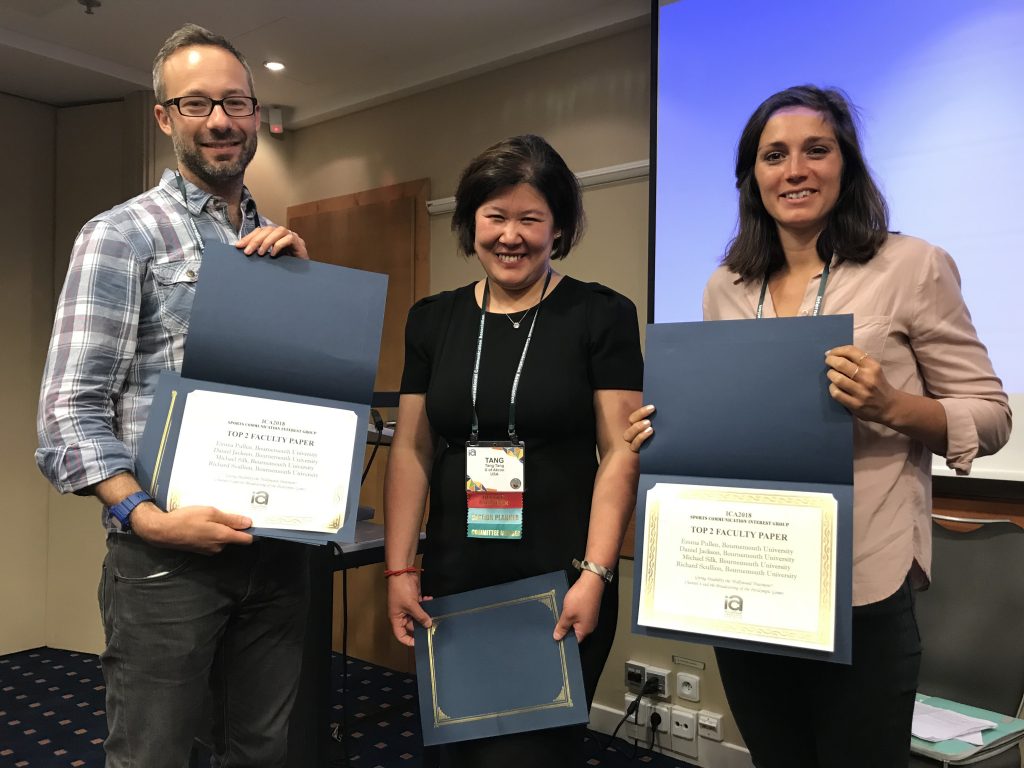
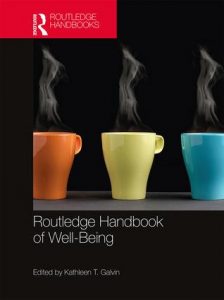 Congratulations to current and past academics in the Faculty of Health & Social Sciences and the Faculty of Science & Technology who contributed to the newly published
Congratulations to current and past academics in the Faculty of Health & Social Sciences and the Faculty of Science & Technology who contributed to the newly published 











 New Nepal scoping review on maternal & neonatal health
New Nepal scoping review on maternal & neonatal health Fourth INRC Symposium: From Clinical Applications to Neuro-Inspired Computation
Fourth INRC Symposium: From Clinical Applications to Neuro-Inspired Computation Writing policy briefs
Writing policy briefs Upholding Excellence: The Concordat to Support Research Integrity
Upholding Excellence: The Concordat to Support Research Integrity ECR Funding Open Call: Research Culture & Community Grant – Application Deadline Friday 12 December
ECR Funding Open Call: Research Culture & Community Grant – Application Deadline Friday 12 December MSCA Postdoctoral Fellowships 2025 Call
MSCA Postdoctoral Fellowships 2025 Call ERC Advanced Grant 2025 Webinar
ERC Advanced Grant 2025 Webinar Horizon Europe Work Programme 2025 Published
Horizon Europe Work Programme 2025 Published Horizon Europe 2025 Work Programme pre-Published
Horizon Europe 2025 Work Programme pre-Published Update on UKRO services
Update on UKRO services European research project exploring use of ‘virtual twins’ to better manage metabolic associated fatty liver disease
European research project exploring use of ‘virtual twins’ to better manage metabolic associated fatty liver disease